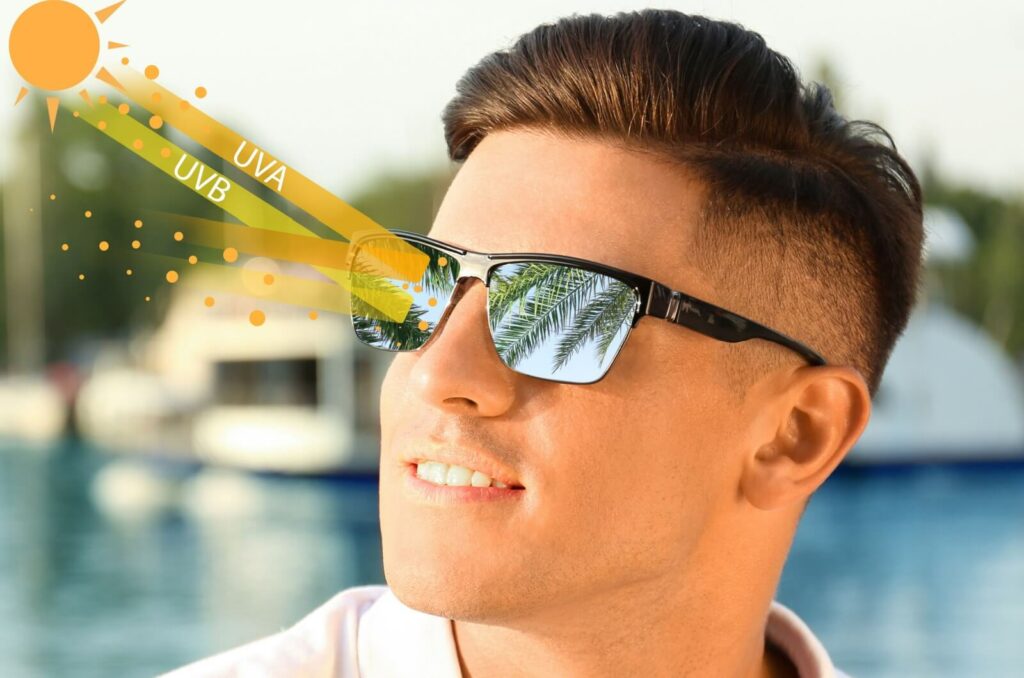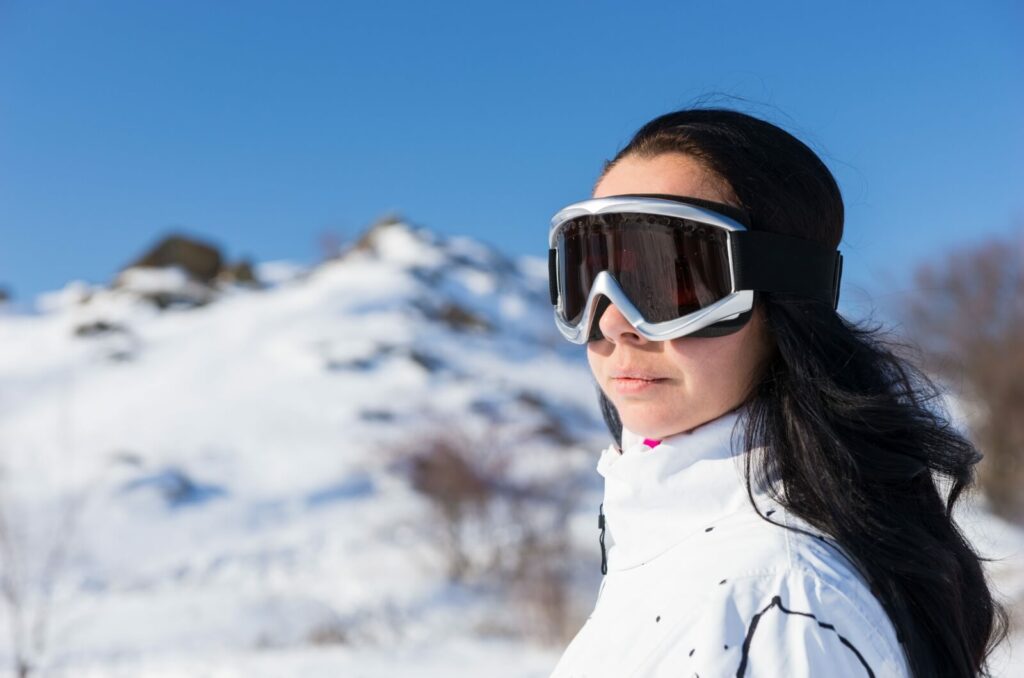While we often remember to apply sunscreen to protect our skin from harmful UV rays, not everyone knows that our eyes need similar protection. Snow blindness is an eye condition that can catch even the most seasoned adventurers by surprise. It’s a reminder that eye care is essential, even on crisp, snowy days.
Snow blindness is a temporary but painful vision condition due to overexposure to the sun’s ultraviolet (UV) rays reflected off snow and ice. If you or a family member suspects snow blindness, your optometrist can examine your symptoms and get you on the path to relief.
Can You Sunburn Your Eyes?
Snow blindness, generally known as photokeratitis, is essentially a sunburn on the surface of the eye. Contrary to common belief, it’s not the cold and snow but the intense UV exposure that causes this condition. Snow blindness is simply the most common form of photokeratitis for a few reasons.
Firstly, UV rays are more intense at higher altitudes because the air is thinner. Even with cloud cover, the UV rays can bounce off the snow, giving you a double dose of cornea-damaging UV radiation. This exposure can happen during various outdoor activities, especially when skiing, snowboarding, mountaineering, or spending a lot of time in snowy environments without protective eyewear.
Recognizing Snow Blindness
Too much UV radiation affects the front of your eyes, especially the cornea, the clear dome on your eye’s surface, and the conjunctiva, the clear membrane lining your eyelids. However, sometimes UV rays penetrate further, damaging the lens or retina.
Much like any sunburn, snow blindness symptoms depend on your exposure level. Common symptoms include:
- Pain
- Light sensitivity
- Red eyes
- Headaches
- Blurriness
- A gritty feeling
- Small pupils
- Watery eyes
- Swelling
- Twitching
If you encounter more severe symptoms, such as halos around lights, distorted vision, or dark spots, consult your optometrist immediately. These could signal significant UV damage or other serious eye conditions. Some of the most dangerous outcomes of UV exposure aren’t felt immediately, they appear years down the line, increasing your risk of serious conditions such as:
- Cataracts
- Eye cancer
- Macular degeneration
What Is UV Radiation?
While sun exposure is a vital part of our lives, such as when it helps our bodies produce vitamin D, the UV light it emits can also cause cell damage in our eyes. Light comes in wavelengths, and ultraviolet (UV) light is an invisible energy on the low end of the spectrum.
Sunlight is often the first thing that comes to mind when we talk about UV radiation. While the sun is indeed a major source, it’s not the only one. Even when you’re indoors, you can still be exposed to UV light from sources like lightbulbs, lasers, and tanning beds. Some types of work, like welding, can also involve significant exposure to UV light.
Moreover, don’t be fooled by cloudy days—UV radiation can penetrate clouds and reach your eyes. So, whether you’re at the beach or on the mountain, you need to be cautious about protecting your eyes.

Preventing Snow Blindness
Preventing snow blindness is often easier than treating it! Protecting your eyes is simple and can save you a lot of discomfort. Here are our tips:
- Wear sunglasses or goggles that block 100% of UV light all year round, not just in the summer.
- Watch out for light reflecting off water, sand, and snow.
- Choose a hat with a brim that’s at least 3 inches wide for extra protection.
- Don’t let clouds fool you—UV light can still reach your eyes on cloudy days.
- Be aware that UV intensity can be higher at high altitudes.
- Stick to the shade during midday when the sun is strongest.
Take care of your eyes and enjoy your time outdoors!
Caring for Snow Blindness at Home
Mild snow blindness often heal naturally within a couple days, if not less if your exposure is incredibly minor. In the meantime, focus on easing your pain and discomfort. Here are some tips you can use at home:
- Rest your eyes in a dark room
- Apply cool compresses to reduce swelling
- Don’t rub your eyes
- Use hydrating eye drops (artificial tears) as your optometrist recommends
For persistent symptoms, it’s important to seek professional care. An optometrist can evaluate the extent of the damage and recommend treatments like antibiotic eye drops to prevent infection.
Keep Your Eyes on the Prize
Taking care of your eyes should be a priority for anyone who enjoys the great outdoors. Snow blindness is preventable, and with the right precautions, you can continue to enjoy your favourite winter activities without worry.
Stay vigilant about your eye health in all seasons. Eye Effects is committed to providing personalized, thorough eye care to help you maintain healthy vision. Whether you’re looking for eye protection or treatment for sunburned eyes, we’re here to help!
Your journeys deserve the best views, so let’s get your vision ready for whatever adventure comes next. Book an appointment today and see why Eye Effects is trusted by so many to keep their sight sharp and safe.


